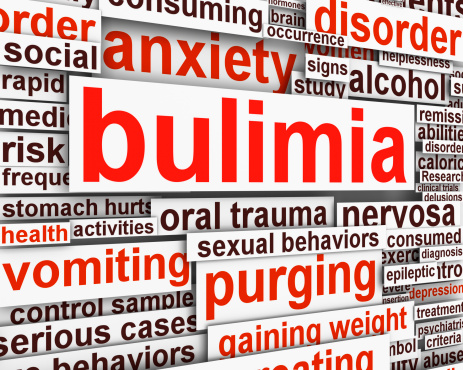EATING DISORDERS

“To lose confidence in one’s body is to lose confidence in oneself”
Yes, we all love to eat and we all have a different taste,choice of what food we prefer to eat. One should have a proper diet, schedule and eating habits for a better lifestyle.Besides this some people face eating disorders where in one eats too much or too less and these eating habits are not common.
WHAT ARE EATING DISORDERS?
Eating Disorders are illness that are characterized by irregular eating habits and severe distress or concern about body weight or shape.
Eating disturbances may include inadequate or excessive food intake which can ultimately damage an individual’s well-being. The most common forms of eating disorders include Anorexia Nervosa, Bulimia Nervosa, and Binge Eating.
It can develop during any stage in life that is teens, childrens, adolescent, men, women and old-age but, typically appear during the teen years or young adulthood.Proper treatment can cure any of the eating disorders. Although these conditions are treatable, the symptoms and consequences can be harmful and deadly if not addressed. Eating disorders commonly coexist with other conditions, such as anxiety disorders, substance abuse, or depression.
TYPES OF EATING DISORDERS
The three most common types of Eating Disorders are as follows:
- Anorexia Nervosa - The person suffering from anorexia nervosa will have an obsessive fear of gaining weight, refusal to maintain a healthy body weight and an unrealistic perception of body image. Many people with anorexia nervosa will fiercely limit the quantity of food they consume and view themselves as overweight, even when they are clearly underweight. Anorexia can have damaging health effects, such as brain damage, multi-organ failure, bone loss, heart difficulties, and infertility. The risk of death is highest in individuals with this disease.
“Anorexia is not an illness of the body; it is an illness of the mind.”
- Bulimia Nervosa - This eating disorder is characterized by repeated binge eating followed by behaviors like overeating, forced vomiting, excessive exercise.People who suffer from Bulimia may fear weight gain and feel severely unhappy with their body size and shape. The binge-eating is typically done in secret, creating feelings of shame, guilt, and lack of control. Bulimia can have injuring effects, such as digestion problems, severe dehydration, and heart difficulties.
- Binge Eating Disorder - Individuals who suffer from Binge Eating Disorder will frequently lose control over his or her eating. Different from bulimia nervosa however, episodes of binge-eating are not followed by behaviors, such as fasting, or excessive exercise. Because of this, many people suffering from Binge Eating Disorder may be obese and at an increased risk of developing other conditions, such as cardiovascular disease. People who struggle with this disorder may also experience intense feelings of guilt, distress, and embarrassment related to their binge-eating, which could influence the further progression of the eating disorder.
WHAT ARE THE CAUSES?
Eating Disorders are complex disorders. Though the exact cause of eating disorders is unknown, it is generally believed that a combination of biological, psychological, and/or environmental abnormalities contribute to the development of these illnesses.
Examples of biological factors include:
- Irregular hormone functions
- Genetics (the tie between eating disorders and one’s genes is still being heavily researched, but we know that genetics is a part of the story).
- Nutritional deficiencies
Examples of psychological factors include:
- Negative body image
- Poor self-esteem
Examples of environmental factors that would contribute to the occurrence of eating disorders are:
- Dysfunctional family
- Poor self-esteem
Examples of environmental factors that would contribute to the occurrence of eating disorders are:
- Dysfunctional family
- Professions and careers that promote being thin and weight loss, such as ballet and modeling
- Aesthetically oriented sports, where an emphasis is placed on maintaining a lean body for enhanced performance.
Examples include:
- Diving
- Gymnastics
- Wrestling
- Long distance running
- Family and childhood traumas: childhood sexual abuse, severe trauma
- Cultural and/or peer pressure among friends and co-workers
- Stressful transitions or life changes
Signs & Symptoms of an Eating Disorder
A person suffering from an eating disorder may reveal several signs and symptoms which are:
- Chronic dieting despite being underweight
- Constant weight fluctuations
- Obsession with calories and fat contents of food
- Engaging in eating patterns such as: cutting food into tiny pieces, eating alone, and/or hiding food
- Depression or lethargic stage
- Avoidance of social functions, family, and friends. May become isolated and withdrawn
- Switching between periods of overeating and fasting
WHAT COULD BE THE TREATMENT?
Adequate nutrition, reducing excessive exercise are the foundations of treatment. Treatment and may include one or more of the following:
- Individual, group, and/or family psychotherapy
- Medical care and monitoring
- Nutritional counseling
- Medications
Click here for help.